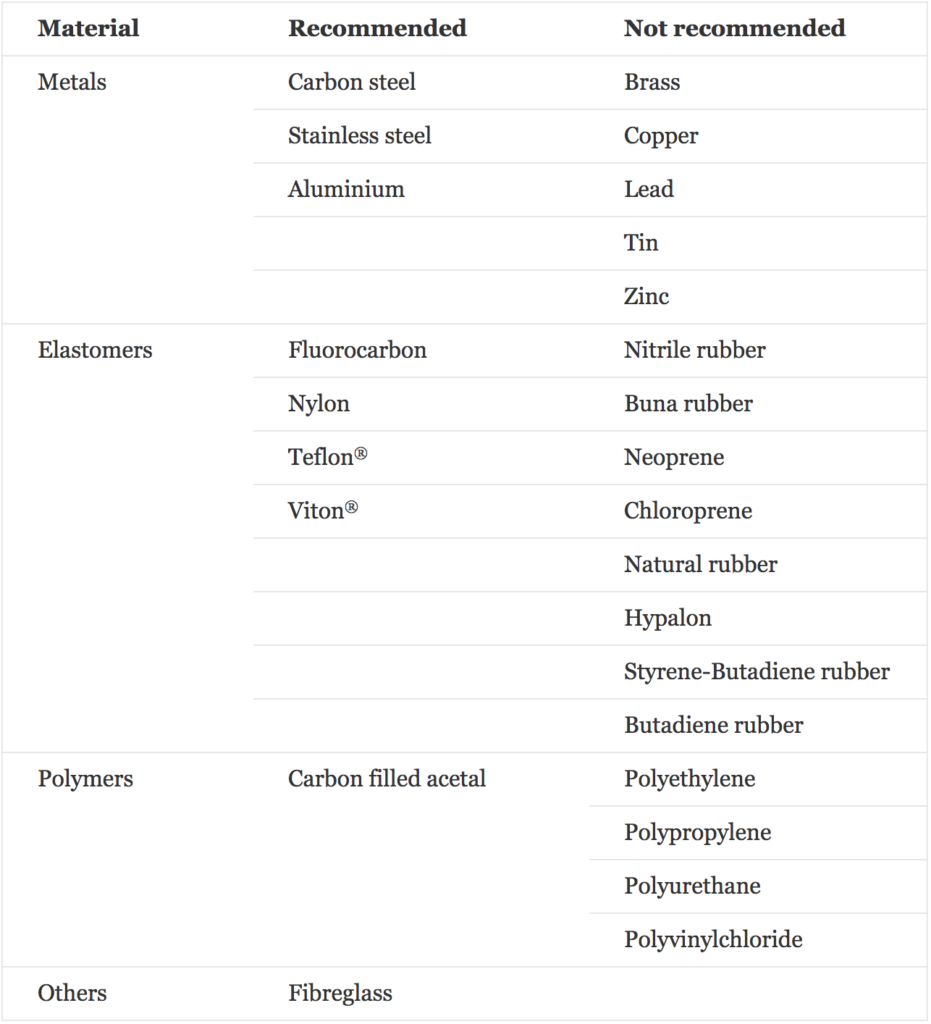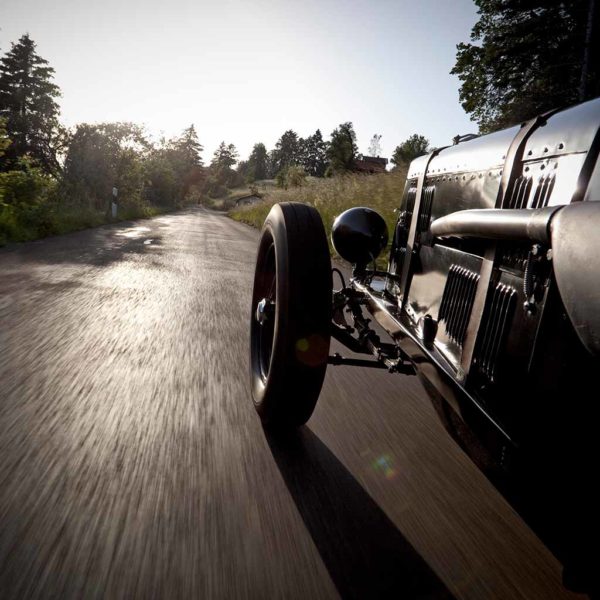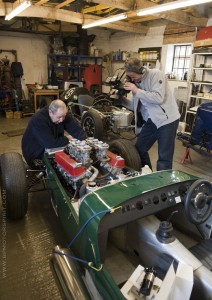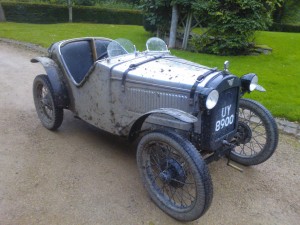The product ethanol added to petrol may also be called bio-ethanol to link its use with non-fossil derived or renewable bio-fuels. Bio-ethanol has been used at times over the decades, but its recent use is linked to EU directives to increase the proportion of automotive fuel derived from renewable sources, in order to reduce carbon dioxide (CO2) emissions.
The fact that all petrol now contains a small percentage of ethanol raises two very important issues :
Ethanol is hydroscopic which leads to a separation of the ethanol and petrol, with the ethanol going to the bottom of the tank/fuel pump/float chamber etc;
and,
Ethanol is not compatible with a range of materials such as aluminium, brass, natural rubber, etc. See full list below(link).
Shell UK have advised as follows :
“The fuel we sell will continue to comply with the relevant fuel standards and specifications as it did previously. The finished petrol will meet the UK gasoline standard EN228, and the maximum amount of ethanol blended into the fuel will be in line with this and the RTFO (renewable fuel transport obligation – 5% max). However that doesn’t really help owners of vintage vehicles. There are several things you can do to minimise the effects of ethanol. Firstly run a non-alcohol based fuel stabilizer all year round. Older engines were designed primarily for straight gasoline, and using ethanol without protection may cause corrosion of some metals in the engine. It also may damage natural rubber and cork parts. Fuel Stabilizers contain additives to protect against rust and corrosion caused by ethanol fuel blends. If practical Install a water separation filter and fuel filter, and replace fuel lines, gaskets or o-rings with new ethanol resistant materials. Similarly replace the fuel tank if necessary with one made from an ethanol resistant material.
In terms of laying up the vehicle; Assuming the above measures are in place (we cannot make a laying up procedure if they are not, as it simply would not be advisable with fuel containing ethanol), we would suggest filling the fuel tank to about 95% of its capacity with fuel, rather than leaving the fuel tank low. This minimizes; the tank-breathing effect, the loss of volatile components and the ingress of moisture into the fuel tank. The latter, in extreme cases, can cause the appearance of free-water in the fuel.
If a fuel is to be stored in a motor vehicle fuel tank, then maintaining fuel quality is important in order to maintain good start-up and a good level of vehicle drivability. When an engine fails to start after a period of lay-up, it may be less to do with fuel deterioration, and could be related to un-seasonal fuel, which may not be sufficiently volatile to start the engine from cold. Non volatile residues are often observed in the fuel tank, delivery system and/or carburettors in cases of severe evaporative loss of a gasoline. The residue can manifest itself as either a gum or lacquer-like film or deposit, or a gel-like substance. This residue would be a combination of low-volatility constituents and detergent additives that are found in gasoline, but concentrated after evaporation. We do not advise storing fuels in vehicles for more than 6 months. You should also take into account the differences between summer and winter grades of petrol. Petrol has a higher volatility in the winter in order to enable cold starting. For this reason it is better to fill the tank with a winter grade fuel (16th October – 14th April) rather than a summer grade.”

This list is not comprehensive and the quality of the material must be appropriate for the intended application. More information can be found at http://fbhvc.co.uk/bio-fuels/
At Holden Vintage and Classic, we are happy to be able to recommend (and we use) these new products from Millers Oils:
VSPe POWER PLUS
DESCRIPTION:
An “all in one” fuel treatment providing ethanol protection, lead replacement and an octane boster for unleaded fuel.
£7.66
APPLICATION:
Recommended for all classic engines previously requiring leaded fuel and now running on unleaded fuel.
USER BENEFITS:
• Adds up to 2 octane numbers (20 points) to unleaded fuel
• Prevents valve seat recession when used with unhardened valve seats
• Prevents detonation, hot spots & running on
• Prevents fuel system corrosion helps protect components
• Combats the adverse effects of ethanol in fuel
• Carburettor anti-icing formula
• Contains anti oxidant to improve fuel life
TYPICAL CHARACTERISTICS:
Specific Gravity@15°C … 0.813
Flashpoint °C …75
Colour …Clear
___________________
MILLERS EPS – ETHANOL PROTECTION
£6.31 (ex VAT)
RECOMMENDED FOR:
Rebuilt classic engines/vehicles with hardened valve seats previously requiring leaded fuel and now running on unleaded fuel and where an octane improver and lead replacement is not required.
Combats the adverse effects of ethanol in fuel
Prevents fuel system corrosion/helps protect components
Carburettor anti-icing formula
____________________
MILLERS VSPe – ETHANOL PROTECTION/LEAD REPLACEMENT £6.71 (ex VAT)
RECOMMENDED FOR:
All classic engines previously requiring leaded fuel now running on unleaded fuel and where an octane improver is not required.
Prevents valve seat recession when used with unhardened valve seats
Combats the adverse effects of ethanol in fuel
Prevents fuel system corrosion/helps protect components
Carburettor anti-icing formula
Contains anti oxidant to improve fuel life
_____________________
POR-15 FUEL PRESERVATIVE & STABILIZER
£11.20 (ex VAT)
When you are not using your car or motorcycle the fuel in the tank and system breaks down chemically and can cause problems.
When you pour FUEL PRESERVATIVE & STABILIZER in your tank, oxygen is chemically isolated (preventing oxidation) and corrosive compounds are neutralized (stopping rust formation).
The special dispenser bottle will measure exactly for you with no waste. Use 1 ounce per 3 gallons for normal maintenance, or 1 ounce per gallon to thoroughly clean your fuel system.
Contains NO alcohol
_____________________
Please note:
Castrol and Morris Oils are currently reviewing their ethanol product range.
Fuel guide type/octane/RON guide (octane and RON are one and the same)
2 star = 92 octane/RON
3 star = Ordinary Unleaded = 95 octane/RON
4 star = Super Unleaded = 98 octane/RON
5 star = 101 octane/RON
Holden










